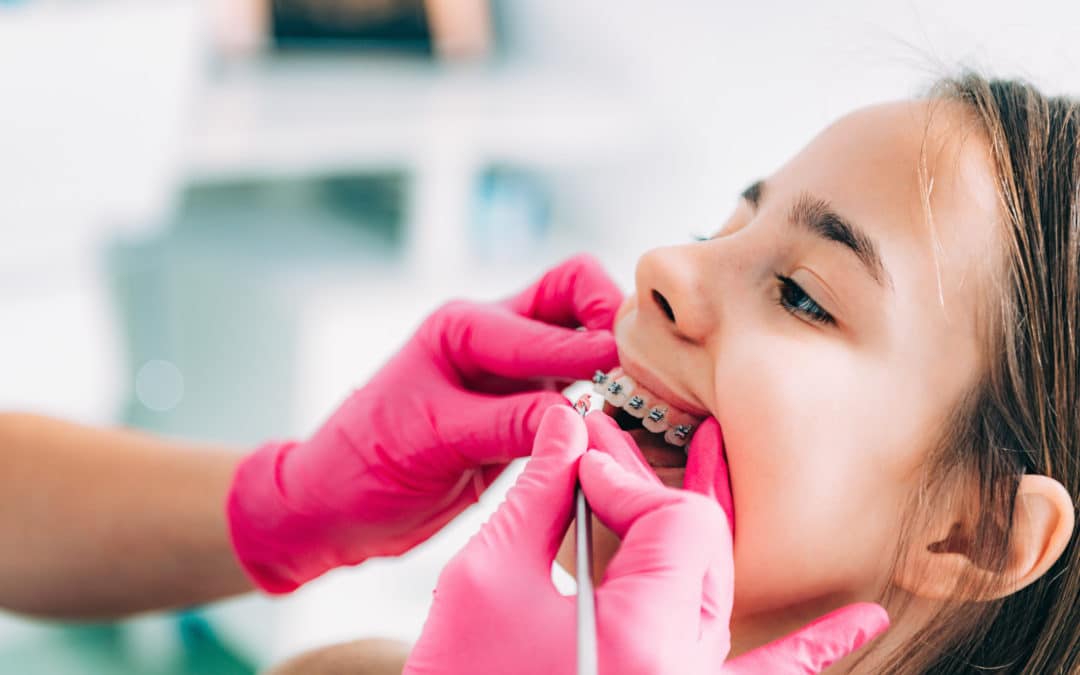Did you know cavities are the most common disease in childhood? Teach your children about oral health, and prevent significant problems like misalignment or teeth space from worsening. Children’s braces can correct overbite or teeth spacing issues. If you’re wondering when to get braces checked out for your child, keep reading.
This guide will teach you about childhood braces and the various options. Some people wonder if it’s too early to investigate braces for their child.
You’ll learn all about braces for kids below.
Does Your Child Need Orthodontic Treatment?
Now it’s time to think about when your child will need braces. Most parents think it’s when there are clear signs like gapped or crooked teeth. These problems aren’t always a sign you need braces.
Red flags include speech problems, a misaligned bite, crowded teeth, and problems eating or snoring while sleeping. Proportion teeth are also a key sign your child needs braces.
Your child could see the orthodontist if they are age seven. If you notice any of the earlier signs, schedule an appointment sooner. It’s better to address dental problems earlier than too late.
Pursuing Early Orthodontic Treatment
You might want to consider looking into early orthodontic treatment. Schedule an appointment if you notice teeth or jaw misalignment or facial asymmetry. The sooner your child sees a specialist, the sooner they can get treatment.
Intervening will help prevent the problem from worsening. Your orthodontist can correct a problem that might not be rectified later.
Your dentist will assess to see if they need to make room in your child’s mouth. They might do this if they need to fix crowding or erupting teeth.
The dentist might need to perform work to improve the child’s facial symmetry. They will also work hard to limit trauma from protruding front teeth.
How to Accelerate Treatment Time
You can correct an overbite that could cause damage like gum disease or uneven teeth wear. Corrective measures can prevent tooth decay or a speech impediment.
Your orthodontist will identify some oral health issues early on and address them. This evaluation can help you as a parent to ensure your child gets a healthy smile.
During the First Visit
A specialist will educate you and your child about oral health during the initial treatment. Your orthodontist will identify problems with emerging baby teeth or jaw issues.
An orthodontist will look to see if a child has straight teeth. The orthodontist might recommend that you watch your child’s growth and development.
An orthodontist will identify a tooth problem that could need care right away.
Finding the right dentist for your child will make a world of difference. You should contact a few dentists to see if they have experience working with children.
Developmental Factors to Consider
Everyone will grow at a different rate. Some children will experience puberty earlier compared to others.
The general rule of thumb is to begin the process between ages 9-13. Your child will likely not have hit puberty yet. If the child has gone through puberty, they will have difficulty adjusting their jaw. This is why it’s essential to meet with your orthodontist so they can assess your child.
What About Ceramic Braces?
If your child needs braces and hasn’t hit puberty, you could consider ceramic braces. Ceramic braces are less conspicuous than metal braces. The ceramic will come tooth-colored or clear and aren’t as noticeable.
For children who feel self-conscious, ceramic braces are an excellent option.
What About Invisalign?
Invisalign is an excellent choice because of its clear retainer trays. These retainer trays will mold to your child’s teeth, so most people can’t see them.
Your child will have the option to remove their Invisalign retainer. They will have more flexibility when drinking and eating different foods.
But will your child remember to put these braces in a safe spot? Retainers won’t get cemented on, so children can lose them quickly. Invisalign is a pricey option. This option might work for an older child.
Have You Heard of Interceptive Orthodontics?
Most dentistry professionals have begun practicing interceptive orthodontics. The orthodontist will address the problems early, so the braces step isn’t extended.
Your child will go through less discomfort, and dental correction is quicker.
What If Your Child Doesn’t Get Braces?
Some parents will decide not to proceed with braces. However, it would be best if you understood the potential consequences of not getting braces.
Some consequences of not getting braces include tooth pain or horrible jaw discomfort when eating food. This can often persist throughout a child’s life. Avoiding braces will also potentially lead to wider gaps between teeth. Your child might become more self-conscious of their smile. Improve their self-esteem and look into childhood braces.
Your teeth may permanently shift without the assistance of braces. If you need to get rid of teeth, have braces, and don’t remove them, your child’s teeth could move and cause jaw pain.
Understanding Braces for Kids
Did you find this guide helpful on when you should pursue braces for kids? find a reputable pediatric dentist or orthodontist with lots of experience.
You can see the specialist if you’re wondering about your child’s oral health. Your dentist can recommend different preventative treatments.
Would you like to learn more? Contact us today for more information. We can help you and your child choose the proper treatment if you’re in Louisville.
